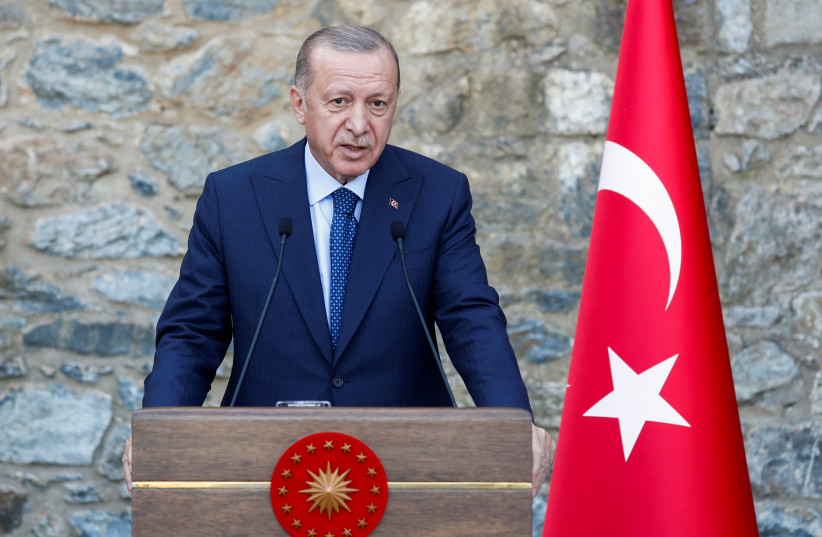At the end of last week, Turkey publicly took credit for thwarting an Iranian terrorist operation against Israeli businessman Yair Geller while he was in the country.
By Saturday night, Channel 12 was reporting that the Mossad was taking credit for having leaked to Turkey information to thwart 12 plots against Israelis in the last two years.
Why did Israel and the Mossad rush to take credit for these issues when Ankara seemed to want to take credit?
What bizarre three-dimensional mind games are going on between the sides?
None of this happens in a vacuum.

If up until approximately the 2009 Gaza war and the 2010 Mavi Marmara flotilla incident, Turkey and Israel had forged deep defense, economic and cultural ties over decades, since then there has been mostly enmity.
For significant time periods, Turkey has also played host to Hamas and Iranian masterminds, terrorist financiers and agents who were not even welcome in a number of moderate Arab states.
Along those lines, in October, Turkey claimed to have busted a 15-person Mossad spy ring and started the trial of the defendants last week.
And yet, in November, Turkish President Recep Erdogan signaled a possible change, intervening to free the Israeli Oaknin family in a strange situation in which Israeli bus drivers on vacation had been arrested (obviously wrongly) for spying.
This release (though, of course, they should never have been arrested) and other processes led to President Isaac Herzog’s upcoming visit to Turkey set for next month.
Israeli government officials are currently on edge about Turkey.
No one wants to rock the boat.
Although they do not see Erdogan as a reliable partner, they would much rather have him be at least neutral and possibly with some positive engagement, than as an enemy.
Turkey is viewed as one of the few countries in the region besides Iran that can keep up with or challenge Israel on a range of playing fields.
So one would think that the last thing the Mossad and Israel would do would be to upset Ankara by upstaging them after they took credit for helping Israel against the Islamic Republic.
Of course, it is always possible that the leaked Mossad help to Turkey was not part of a coherent strategy and just someone going rogue to take some personal credit.
More likely, it was decided at the highest levels to take credit.
Without getting into whether Israel’s gamble on Turkey will pay off, assuming Jerusalem has such a goal, how did the Mossad leak advance that goal?
In the Byzantine and counter-intuitive world of intelligence, the thinking could have been that Erdogan was trying to enter negotiations with Israel with some kind of advantage, and that removing that advantage would not undermine the process.
If Israel believes that Turkey is truly committed to some kind of better relations, or that such relations can only be achieved from a position of strength, then even though Israel is walking on eggshells with Ankara in other areas, the Mossad might be the place to still stand tall.
In fact, the Mossad’s assistance of Turkey may have been part of the real starting point in Erdogan reconsidering his anti-Israel position (along with Jerusalem’s current strong position with Washington, moderate Arab Sunnis and solid relations with Russia and China).
In July 2019, the Mossad leaked to Channel 12 that it had prevented 50 terrorist plots by ISIS and Iran over the last three years.
Note that Turkey emphasized Iran last week while the Mossad emphasized ISIS.
The Mossad’s message to Turkey is a reminder: Yes you might help us with Iran to save Israeli when we top you off, but without us you could have major terror attacks against ‘regular’ Turkish citizens by ISIS.
As the sides near a jump in engagement next month, Jerusalem is making it clear to Erdogan that whatever the Jewish state has to gain by smoothing over some of the disagreements, Ankara has even more to gain – and in the areas that matter most.
